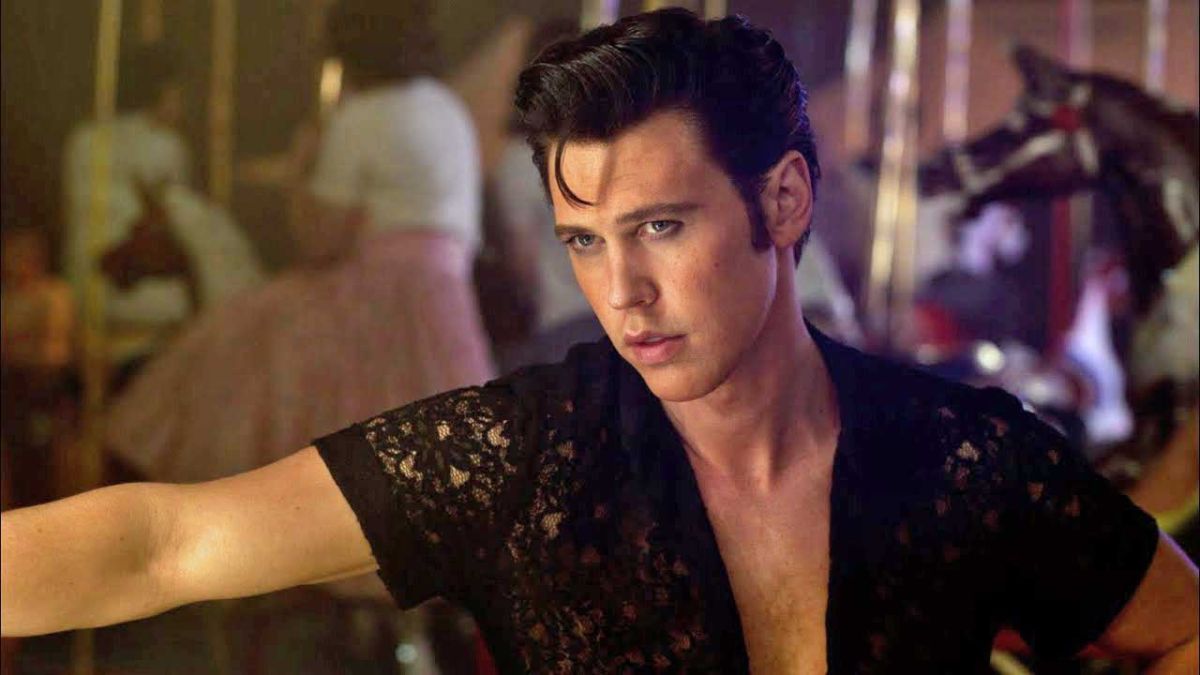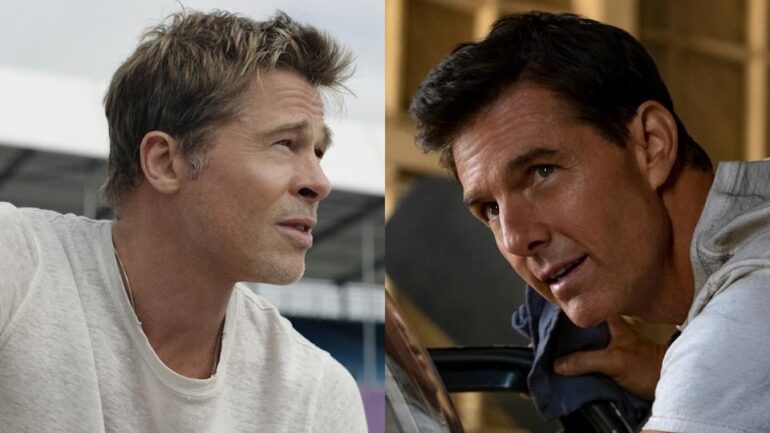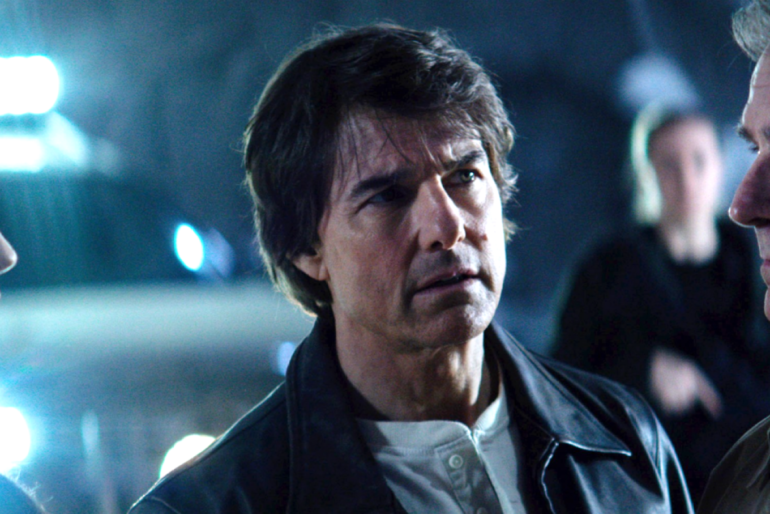chevron_left
-
play_arrow
NGradio So good... like you
‘Elvis’ drowns Butler’s spot-on performance under a frenetic flood of style

“Elvis” has entered the theaters, but in a package that often recalls the excesses associated with his Vegas-residency years: Looking bloated, gaudy and at times bordering on self-parody. Those missteps, courtesy of director Baz Luhrmann and an ill-used Tom Hanks, squander Austin Butler’s brilliant moments in the title role, which deserve a much better movie.
Luhrmann’s most pertinent credits include the visually striking musical “Moulin Rouge!,” which offers obvious stylistic parallels. Yet employing the rambunctious, surreal aspects of that 2001 romantic fantasy clashes with the demands of a biographical film, drowning the substance with fast-paced and frenetic editing that blunts the emotion of Butler’s spot-on performance, which has been embraced by Presley’s family and would be a showstopper if only given room to breathe.
Although Elvis Presley’s life has been documented in a variety of projects, the main precedent here seems to be a 1993 TV movie, “Elvis and the Colonel,” which focused on the relationship between the star and his manager/handler Col. Tom Parker, casting Beau Bridges as the latter. A colorful and shadowy figure, Parker’s control prompted allegations of serious financial shenanigans that were only exposed after Presley’s death in 1977.
Here, Luhrmann (who shares script credit with three others, nearly a decade after his last film “The Great Gatsby”) makes the near-fatal error of primarily telling the story from Parker’s point of view. That places the emphasis on a heavily made-up Hanks — adopting an accent that can at best be described as punishing — who serves as the narrator and directly addresses the audience.
“I am the man who gave the world Elvis Presley,” Parker boasts, adding, “Me and Elvis, we was partners.”
“Elvis” thus kicks off at the critical phase when Parker comes into Presley’s life as he’s regionally launching his singing career. But Parker’s frame of reference has less to do with music — indeed, he’s largely indifferent to that — than carnival attractions, almost salivating when he identifies the powerful effect that Elvis’ gyrations have on females in the crowd.
While that still leaves room to chart Presley’s spectacular rise despite the creative and professional shackles that Parker placed upon him, Luhrmann’s narrative approach doesn’t really develop the characters, including, to a degree, Presley himself. Scenes race by so quickly that even Elvis’ wife Priscilla (Olivia DeJonge), parents (Helen Thomson and “Moulin Rouge!” alum Richard Roxburgh) and posse of Memphis pals are name-checked but barely register, despite a movie that runs more than 2 ½ hours.
Where does the time go? Much of it is devoted to meticulously replicating Presley’s performances, including a detailed presentation of his acclaimed 1968 NBC special, which gives Butler’s unerring mimicry an opportunity to shine. But efforts to contextualize Presley’s journey with events such as the devastating assassinations of the ’60s and race relations are obscured by the narrative blur, which isn’t helped by glib dialogue like Parker saying, “Is it my fault the world changed?”
At a minimum, the film helps rekindle an appreciation of Presley’s talent that will have many dusting off greatest-hits collections and humming those classic tunes. Yet as impressive as it is to see Butler approximate the King belting out something like “Suspicious Minds,” “Elvis,” the movie, ultimately winds up caught in a trap entirely of its own making.
Source: edition.cnn.com
Written by: New Generation Radio
Similar posts
ΔΗΜΟΦΙΛΗ ΑΡΘΡΑ
COPYRIGHT 2020. NGRADIO




















Post comments (0)